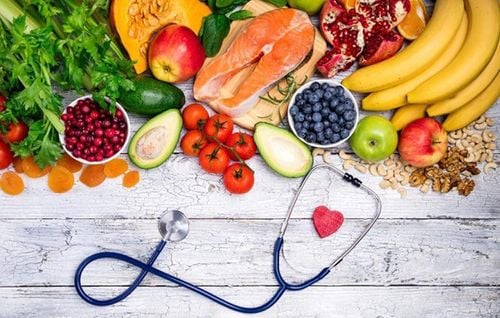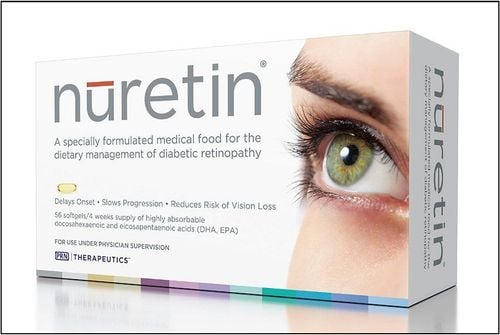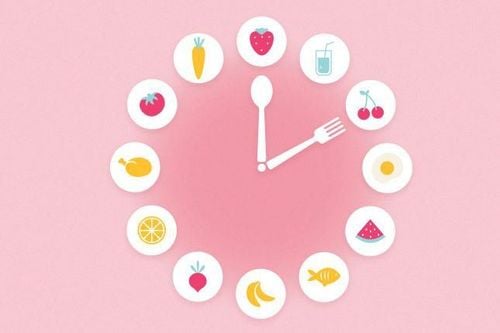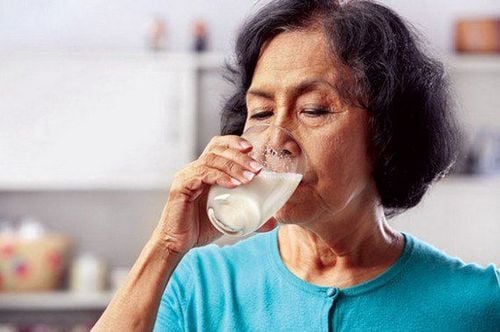This is an automatically translated article.
A healthy and balanced diet is very important for the overall health of people, especially those who are undergoing cancer treatment. This not only helps to significantly improve the patient's resistance but also contributes to improving the effectiveness of treatment.
1. The importance of nutrition in cancer treatment
In Vietnam today, the number of cancer patients who do not receive proper nutritional care during treatment is increasing. This causes the patient to quickly lose weight and become malnourished, which is very worrying. On the other hand, one of the most common conditions that most cancer patients are susceptible to is physical exhaustion. This problem can stem from unwanted side effects of cancer treatments, or it can also happen because of anxiety, anxiety and boredom of the patient.
However, after all, the exhaustion is largely due to the tumor affecting the body. Strongly active cancer cells will make the body's normal metabolism change, from which meager energy sources are consumed more, even tissues, muscles and cells in the body. can be severely damaged. Therefore, the physical and mental exhaustion of the patient is inevitable.
In addition, severe physical and weight loss also makes it impossible for many cancer patients to continue to "make effort" to follow all treatment courses. This not only adversely affects the effectiveness of treatment, but also reduces the patient's prognosis. And yet, without adequate nutritional care, people with cancer are at high risk of complications, infections, and even death.
In general, the diet for cancer patients needs to ensure that there are adequate groups of substances, including fats, proteins, starches, vitamins, water and essential minerals. People with cancer should focus on eating less meat but more vegetables, fish, vegetable oils, and actively exercise more often to provide a full range of nutrients and improve immunity. resistance to the body, helping to fight the "attack" of cancer.
The patient's family should try to let the patient comfortably eat according to their favorite taste. Meals should also be divided into several meals so that the patient's body can easily absorb nutrients. In addition, the patient's relatives also need to advise the patient to be physically active, to limit lying in one place, to keep the mind at ease, to relax, to avoid anxiety and negative thoughts. too much to make the treatment better.
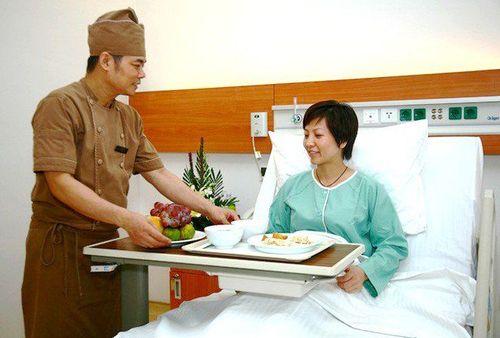
Người bệnh ung thư cần được cung cấp chế độ ăn khoa học
2. Essential nutrients in the diet of cancer patients
As mentioned above, a diet with full of important groups of substances will help cancer patients improve their resistance to be able to fight disease and improve efficiency. of the treatment process.
One of the biggest disadvantages of cancer treatment is the loss of appetite. This happens because of fear and depression in the patient, sometimes due to a change in taste or side effects of treatments. In some cancer patients, anorexia can last for only a few days, in others it can last longer. Therefore, patients should try to increase their intake of foods that provide a lot of energy, protein, as well as fluids, especially nutrient-rich beverages, juices, milk or mashed foods. . In addition, the patient's family should also create a comfortable and happy atmosphere for the patient during the meal. Here are the nutrients needed in the diet of cancer patients, including:
2.1 Carbohydrate diet for cancer patients Starch is often found in whole grains, such as: grains of barley, wheat, corn, rice and tubers such as taro, sweet potato, potato or cassava. Patients should limit eating processed foods that contain a lot of simple sugars, because they can bring many negative effects to health, in addition, they should also avoid consuming foods with a lot of added added sugar. additives.
2.2 Protein-rich diet Protein is found in many meats, helping the body to fully absorb important amino acids. To achieve this, patients need to eat foods that are varied and balanced between the two groups of plant and animal proteins.
2.3 Fatty diet Fat in the daily diet of cancer patients needs to provide a certain amount of fat, in which the content of unsaturated fatty acids should not exceed 50% of the total energy. .
2.4 Vegetable and fruit diet Vegetables often provide a significant amount of vitamins, with many benefits for a person's overall health. The change in eating habits during treatment is inevitable. In particular, foods such as meat often bring a fishy or bitter feeling to the patient. However, after stopping the course of treatment, the change in the patient's taste will disappear on its own. Here are some ways to help cancer patients reduce discomfort when eating, including:
Patients should rinse their mouth before eating Eat a lot of sour fruits such as lemons, oranges, tangerines, grapefruits ( unless the patient is experiencing pain in the mouth or throat). Divide the main meal into several small meals throughout the day, and at the same time let the patient eat their favorite dishes, but limit the intake of red meat.
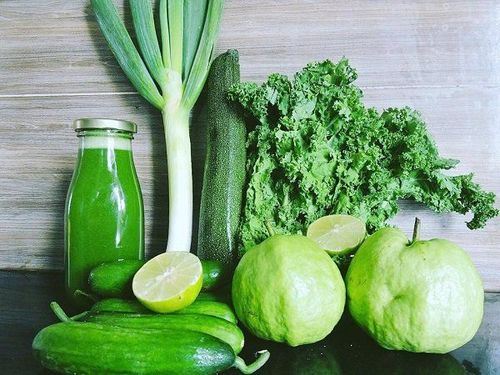
Người bệnh ung thư nên ăn nhiều loại rau quả có lợi
People who are undergoing radiation or chemotherapy in areas such as the head and neck may experience dry mouth due to decreased saliva production. This makes the patient's anorexia worse. For these cases, the patient should note some of the following:
Eat foods that contain a lot of water or soft foods, for example, noodles, cheese, milk, noodles, vermicelli, cereal flour. Increase saliva production by eating sour fruits or chewing gum Drink plenty of water Eat chilled desserts Rinse your mouth at least 4 times a day and clean your teeth Limit eating foods containing High in sugar Cancer patients with lesions in the oral cavity should avoid eating solid, difficult to chew, and spicy foods, as these can increase the severity of the disease. damage.
Many patients undergoing chemotherapy may experience symptoms such as nausea and vomiting. In this case, the patient should eat before the onset of hunger, as this can make the feeling of nausea more intense. In addition, the patient should also drink more fluids, drink water in small sips and use dry foods such as toast or crackers.
Patients being treated for cancer should note that they should drink 8-12 cups of water a day, such as fruit juices, milk or foods containing a lot of water. Patients should drink water regularly during the day, should not wait until they feel thirsty to drink, but should avoid using beverages containing a lot of caffeine.
3. Diet pyramid for cancer patients
Regarding eating plans for cancer patients, the American Dietetic Association (ADA) has come up with a pyramid recommendation to guide the types and servings of foods you should eat. Eat daily to maintain health. There is no good or bad food, just good or bad diet or eating style. This means that long-term eating habits are more important than what you eat in your daily meals.
3.1 Refer to the Nutrition Pyramid Diet Foods mentioned in the nutrition pyramid will represent how important they are to health. You should eat more of the food shown at the bottom of the pyramid than the foods shown at the top of the pyramid. For example, grains, fruits and vegetables are at the bottom of the nutrition pyramid (should eat more), while meat, dairy and fat groups are at the top of the pyramid (should eat less). While all food groups are important, plant foods should be given more emphasis, while animal products and added fats. should limit their consumption or eat them in moderation.
The following are servings for each food group:
Breads, cereals, rice and pasta groups (6-11 servings per day): one serving includes:
1 slice of bread 1/2 cup cooked pasta 1/2 cup cooked cereal (oatmeal, flour, cream of wheat) 1 oz instant cereal 1/3 cup rice 4-6 crackers
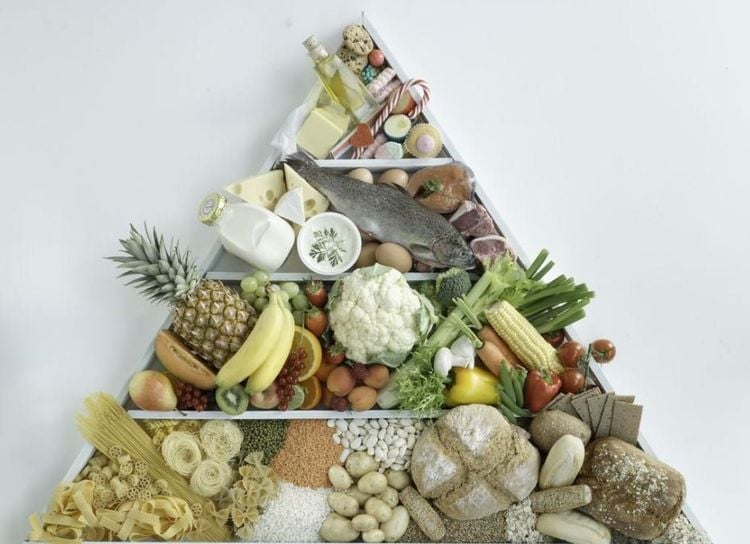
Người bệnh ung thư cần được tư vấn về tháp dinh dưỡng cho khẩu phần ăn từng ngày
Fruit group (2-4 servings per day): one serving of fruit includes
1 medium-sized fruit, such as oranges, apples, pears, bananas 1/2 cup fresh, ripe, frozen fruit or canned 1/4 cup dried fruit, like raisins, mangoes or apricots 3/4 cup (6 oz) 100% fruit juice Vegetable group (3-5 servings per day): one serving of vegetables includes:
1 cup raw vegetables (including broccoli, carrots) or leafy greens (such as lettuce, spinach) 1/2 cup cooked vegetables 3/4 cup vegetable juice Milk, yogurt and cheese group (2- 3 servings a day): for dairy products and recipes that use them as ingredients, choose skim or 1% milk and soft cheeses, such as ricotta, parmesan , fresh cheese, mozzarella and Neufchatel. Typically, a recommended serving of dairy foods would include:
1 cup milk 1 cup plain yogurt 1/2 oz natural cheese or 2 oz processed cheese 1/2 cup cream or iced milk Meat, poultry, fish, dried beans, eggs and nuts (2-3 servings or 6-9 oz a day): one serving of meat or meat substitute typically includes 3 oz of beef, chicken , pork, fish and vegetarian burgers. For an easy assessment of meat servings, you can approximate 3 oz about the size of a woman's palm. If using red meat, you should choose lean cuts of loin or ribs, as they contain less fat. Typically, 1 ounce of meat or a meat substitute will include:
1/2 cup cooked or canned beans (beans or peas) 1 egg 3/4 cup nuts 2 tablespoons peanut butter fatty, oily and sweet foods, you should limit eating this food group because they contain a lot of calories and fat. One serving of fat includes:
1 teaspoon regular oil or mayonnaise 1 tablespoon light mayonnaise 1 tablespoon regular or 2 tablespoons light salad dressing 2 tablespoons sour cream 1 strip of bacon One serving sweet include:
1 – 3 inches (about 2.54 – 7.62 cm) biscuits 1 donut 1 teaspoon sugar or honey
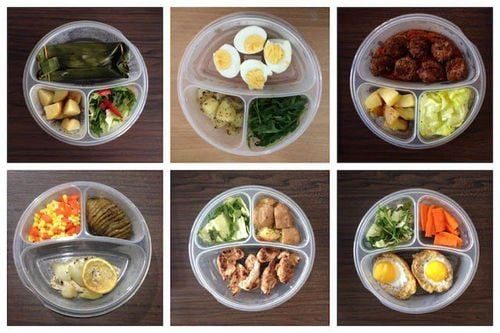
Khẩu phần ăn khoa học sẽ giúp ích trong hỗ trợ điều trị ung thư
The application of a nutritional pyramid diet plays a role in helping patients minimize the side effects of the treatment sessions and improve their health in the best way.
If you need a doctor or a nutritionist to advise you on a specific menu for each medical condition, you can go to Vinmec International General Hospital for further discussion by specialist doctors.
The hospital is famous for its team of highly qualified doctors who have operated on many difficult and complicated cases. In particular, the doctor is ready to listen and advise on good nutrition and food for all ages as well as according to the individual needs of each customer.
Please dial HOTLINE for more information or register for an appointment HERE. Download MyVinmec app to make appointments faster and to manage your bookings easily.
Reference source: stanfordhealthcare.org



